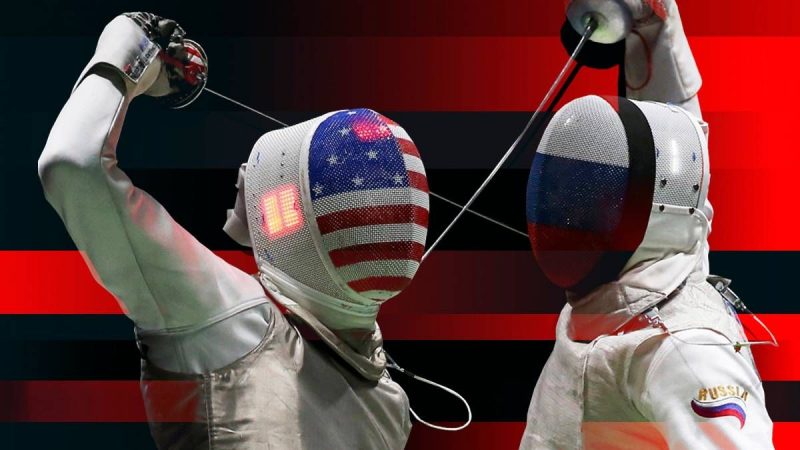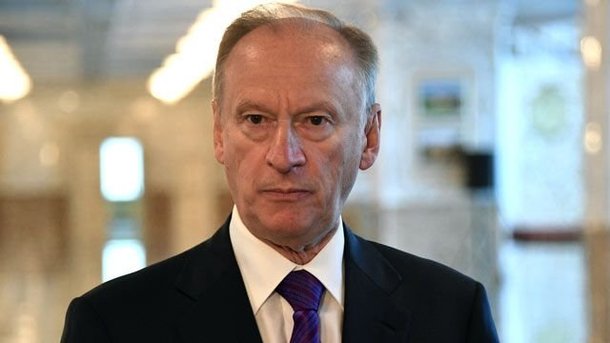14.11.2017, Russia.
An Italian science fiction writer Roberto Quaglia called contemporary politics dystopian and “uchronic” at the meeting of the Sofia international club in Moscow on November 5, a correspondent of the Rossa Primavera Information Agency reports.
Responding to a journalist’s question on whether science fiction today has a chance to regain its capability of foreseeing the future, after humanity, according to philosopher Jean Baudrillard, “lost the goodness of transcendence”, the writer suggested that the problem of the image of the future is more complicated, and that it begins with describing the present.
Quaglia noted, “The point is that they (science fiction writer – editor’s note) don’t even describe the present very properly because now we are living in very strange times where basically we live already in a sort of Orwellian and Huxley’s society, in the both in the same moment, and also in a Dickian dystopia (a contemporary American science fiction writer ― Rossa Primavera Information Agency). So basically we already live in a kind of world like Philip K. Dick, where we have layers of myths and mystifications that prevent us to actually see what is going on for real. And we see it in politics. … It is a dystopian politics, you know, I would say uchronian (a term used by the 19th century French philosopher Charles Renouvier ― Rossa Primavera Information Agency) this means a politics of a place that does not exist.”
According to Quaglia, “And the science fiction writers, they live in a non-existing world now because they don’t extrapolate a future starting from a present which they know. But they extrapolate the future starting from a present that they don’t know. … So, every scenario that they invent for the future is froth, it contains original mistake.”
The writer believes this to be an intellectual crisis of science fiction. “They live in a kind of dogmatic dream… So their vision of the future is quite a parallel universe that will never exist. This is the main problem of all science fiction now.” Quaglia believes that science fiction has been reduced to fantasy, an essentially narrower genre, while the few meaningful works cannot reach a wide audience because they fall out of the general trend.
At the November 5 meeting of the Sofia club in Moscow, its participants, intellectuals representing European and Russian left-wing movements, discussed the current political situation in Russia and Europe as well as economic, social, and existential problems caused by capitalism, in order to find a new alternative from the left.
Editorial comment
Many contemporary thinkers have pointed to the peculiar immersion of our reality into the truth or, more exactly, in the lies of the present day, while lacking an adequate image of the future. A fear of the future and even a directive ban on the foresight now dominate all the aspects of life, in which strategic novelty used to play a key role.
Perhaps most impressively contemporary philosopher Jean Baudrillard expressed this longing for the future. Despite of his post-modernist image, this French intellectual genuinely lamented that “the goodness of transcendence” had abandoned the contemporary. In other words, Western society cannot imagine any reality that would be fundamentally different from the world that currently exists, or from its fantasy-related surrogates. Baudrillard’s concern is shared by many thinkers and columnists of the left orientation who are searching for alternatives to the existing world order.
Their concern is based on the fear of losing sight of the future, and thus of the reality. For example, the dictatorship of the “here and now” in art nullifies any chance of “looking beyond the horizon”, without which no mature historical conscience can be imagined. In order for the development of the humanity to continue uninterrupted, the production of the strategic novelty must move in advance of the production of things, and art must be able to clear “ways for being”. “Science is about what exists, art is about what is to come,” this is how Aristotle expressed the difference between the concept-based and the image-based exploration of the reality. Marx would add to this that scientists are called to explain reality, while the mission of artists is to prepare its change by making a bridge from what exists to what is to come. Of course, this division is conditional, and science itself cannot be imagined without a heuristic intuition, as creation cannot be imagined without inspiration. Therefore, it is symptomatic that attempts are being made to rid science of its orientation towards the future, and to reduce its goals to merely application-oriented and pragmatic ones.
This fear of the future is most pronounced in science fiction, which was at the cutting edge of the artistic foresight for nearly one hundred years; but at a certain point, it abandoned its progressive mission. The science fiction writers of the past presented a world to the reader, which was organized differently, a qualitatively transformed world; however, their successors of today offer the public, at best, improved and supplemented copies of the current reality which, furthermore, was misunderstood from the beginning.
As for writers in this genre who try to freely apply their fantasies like in days of old, they construct worlds which “will never come into being”. Just look at all those “alternative universes” and “parallel worlds” an exciting excursion to which is offered today in any movie theater. A person who does not want to live according to the principle “Carpe diem” buys a ticket; but in contrast to his expectations, he does not find himself in the future, becoming instead suspended in the middle of nowhere, i.e. in the “uchronic” world Roberto Quaglia is talking about.
These kinds of trends are even more worrisome as we increasingly encounter a forced virtualization along with a ban on dreaming of anything else. A strategic adherence to the current moment on the one hand, and virtualization on the other, do not exist by themselves, but they are rather imposed in a directive way. Case in point are the attempts to create a pseudo-scientific slang which queerly resembles the Orwellian “Newspeak”. This “Newspeak”, as its authors believe, can only be used to acknowledge the existing state of things, but it can never be used to address neither the past, nor the future.
Such linguistic experiments were made by many philosophers, from Ludwig Wittgenstein to members of The Vienna Circle (German: Wiener Kreis), in particular Rudolf Carnap. Despite the fact that such a language has fortunately not been recognized neither in the scientific world nor elsewhere, the war for the vision of the future is still at its height. Therefore, reality, understood as the unity of past, present, and future, needs to be protected by progressive artists and thinkers today more than ever before. Otherwise, its will be permanently eliminated by its “uchronic”, or, according to Jean Baudrillard, “hyper-real” surrogate.
Source: Rossa Primavera News Agency




